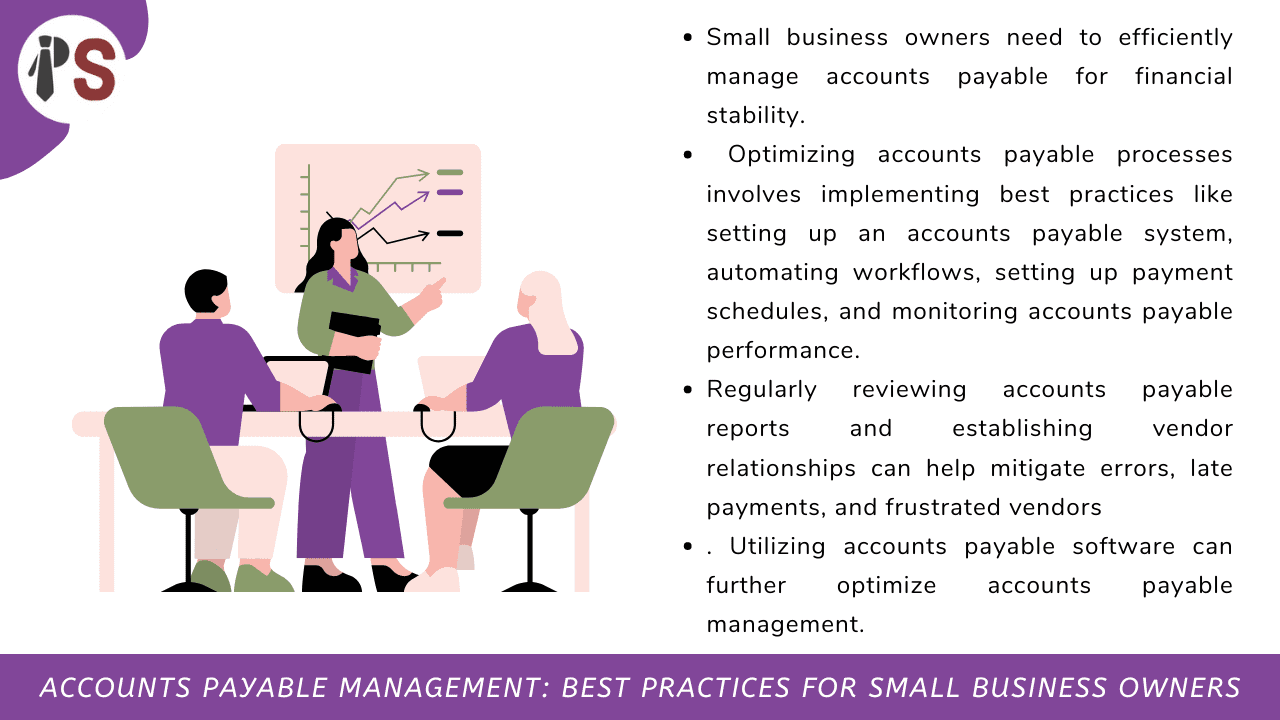
Accounts payable (AP) is the amount of money that a business owes to its vendors and suppliers for goods and services received on credit. AP management is an important aspect of running a successful business as it ensures timely payments to suppliers, maintains healthy relationships with them, and keeps track of the company's expenses. In this blog, we will discuss the best practices for accounts payable management for small business owners.
Set up a process for managing accounts payable
The first step towards effective AP management is to set up a process for managing the accounts payable. This process should include a system for tracking invoices, receiving approvals for payments, and issuing payments. It's important to establish a clear workflow for AP management and ensure that all stakeholders are aware of their roles and responsibilities.
Implement an accounts payable system
Using an accounts payable system can help small business owners streamline the AP process and reduce errors. An accounts payable system can automate invoice processing, eliminate manual data entry, and provide real-time visibility into the status of invoices and payments. This can help small business owners save time and improve accuracy in managing their accounts payable.
Negotiate payment terms with suppliers
Small business owners can negotiate favorable payment terms with their suppliers to improve their cash flow. For example, they can negotiate longer payment terms or request discounts for early payments. Negotiating favorable payment terms can help small business owners manage their cash flow effectively and maintain good relationships with their suppliers.
Review invoices carefully
Small business owners should review all invoices carefully to ensure that they are accurate and reflect the goods and services received. They should also ensure that the prices charged are in line with the agreed-upon rates. Reviewing invoices carefully can help small business owners avoid overpayments, duplicate payments, and other errors.
Set up a payment schedule
Setting up a payment schedule can help small business owners manage their cash flow effectively and avoid late payments. A payment schedule can help ensure that payments are made on time and that the company's cash reserves are used efficiently. It's important to communicate the payment schedule to suppliers and ensure that they are aware of the payment due dates.
Monitor accounts payable regularly
Small business owners should monitor their accounts payable regularly to ensure that payments are made on time and that the AP process is running smoothly. This can be done by reviewing AP reports, tracking invoice status, and communicating with suppliers regularly. Regular monitoring can help small business owners identify potential issues and take corrective action before they become bigger problems.
In conclusion, accounts payable management is an important aspect of running a successful business. By implementing best practices for AP management, small business owners can streamline the AP process, reduce errors, and maintain good relationships with their suppliers. It's important to establish a clear workflow, implement an AP system, negotiate payment terms, review invoices carefully, set up a payment schedule, and monitor accounts payable regularly.
At Professional Saathi, we offer a range of business consultancy services that help businesses improve their performance, achieve growth, and overcome challenges.
Copyright 2026 © Created By KTPG PROFESSIONAL SAATHI CORPORATE CONSULTANT PRIVATE LIMITED, All Rights Reserved.
Leave Your Comment